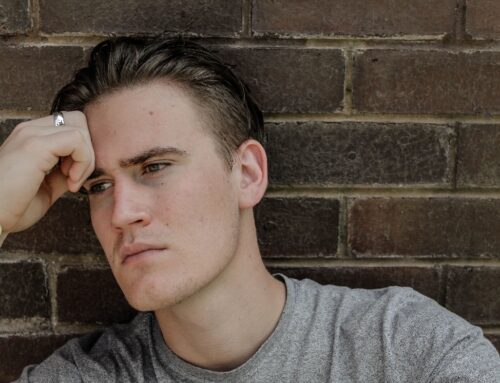 You can’t even remember the last time it actually felt like you did something right. No matter if it’s your home life or at work, very few things in your life are working out how you imagined them.
You can’t even remember the last time it actually felt like you did something right. No matter if it’s your home life or at work, very few things in your life are working out how you imagined them.
You used to think of yourself as someone who had it all together. You’re the type of person that follows a sleep schedule and routine, meal preps on weekends and tries to get involved or help in any way that you can.
But you’ve been struggling for a while, and you’re not sure how to get back to your version of normal.
Let’s learn more about high-functioning depression.
What Is High Functioning Depression?
You’ve probably heard of depression before. Depression is a serious mental condition impacting how a person thinks, feels, and acts. When someone experiences high-functioning depression, they experience all of the same signs and symptoms of someone who experiences normal depression, but the symptoms are often less severe.
When depression affects individuals, they usually have a hard time functioning in their daily life and routine. Someone with high-functioning depression has the ability to still function almost completely normally or somewhat close to their version of normalcy.
The Cause
 There isn’t one specific reason or cause for developing depression or high-functioning depression. Typically, any type of depression is caused by a combination of things. These are some of the most common causes of high-functioning depression:
There isn’t one specific reason or cause for developing depression or high-functioning depression. Typically, any type of depression is caused by a combination of things. These are some of the most common causes of high-functioning depression:
Brain Imbalances
Similar to normal depression, imbalances in the brain can lead to depression. These imbalances of the brain chemicals can affect and impact things like a person’s mood, behavior, and thoughts.
Genetics
Depression tends to run in families. If someone in your family showed signs or symptoms of depression, you may be more at risk of developing it yourself.
Life Events or Trauma
Life events are one of the most common causes of depression. Sudden changes or negative events like losing a loved one, a job, or a relationship can trigger depression. Experiencing trauma is another way that someone may begin to develop signs and symptoms of anxiety, post-traumatic stress disorder (PTSD), or depression.
Medication or Substances
Depression is often listed as a side effect of some medications. On the other hand, substances like drugs and alcohol can also cause depression. Many individuals may start to use drugs and alcohol as a way to temporarily relieve the signs and symptoms they may be experiencing. Unfortunately, these actions can lead to worsening signs and symptoms over time, especially if left untreated.
Medical Conditions
Some medical conditions may put you more at risk of developing depression. Some of the most common medical conditions that can lead to depression are cancer, chronic pain, diabetes, or heart disease.
The Signs and Symptoms
 Someone with high-functioning depression will still show signs and symptoms that someone with normal depression faces. They just won’t experience them as intensely as someone who has major depression. These are some of the most common signs and symptoms of high-functioning depression:
Someone with high-functioning depression will still show signs and symptoms that someone with normal depression faces. They just won’t experience them as intensely as someone who has major depression. These are some of the most common signs and symptoms of high-functioning depression:
- Changes in appetite
- Fatigue
- Feelings of hopelessness
- Insomnia
- Inability to make decisions
- Lack of energy
- Lack of concentration
- Low self-esteem
Someone with high-functioning depression will experience some of these signs and symptoms listed above for most days over the course of two years.
Treatment Options
No matter if you’re experiencing normal or high-functioning depression, it doesn’t mean that you don’t need to seek support. Depression is a common and serious mental health condition. Seeking additional support from a licensed and trained mental health professional is often necessary in order to start feeling better.
If you’re interested in learning more about high-functioning depression or seeking treatment for it, reach out to me today to set up a consultation. You can learn more about counseling for depression here.





